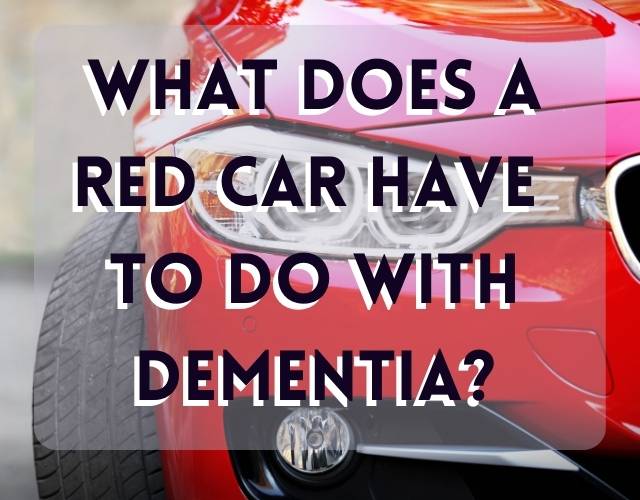Did you know that Alzheimer’s Disease is far more common than most people realize?
It’s true. Alzheimer’s disease impacts of people and the numbers are increasing every day.
So why is it that most don’t realize how prevalent Alzheimer’s is?
Have you ever been in a situation where you think something is pretty unique and unusual, only to find out it’s not that uncommon? Sometimes called frequency bias or red car syndrome, it’s what happens when you get a red car and then all of a sudden you notice there are red cars everywhere.
It might even seem like there are more red cars than ever before, as though you just started a trend. Of course, there aren’t any more red cars than there were before. It’s just that you started noticing them because you are thinking about your own brand new red car.
You might be wondering what red cars or red car syndrome has to do with Alzheimer’s disease.
Bear with me.
If you or a loved one has been recently diagnosed with Alzheimer’s, according to basic principles of psychology, you should be running into other people who are also living with Alzheimer’s.
After all, there are currently more than 6 million people living with Alzheimer’s in the United States alone.
In fact, about 1 in 9 adults 65 years and older has Alzheimer’s.
That’s a lot of people impacted by Alzheimer’s. And, probably a lot more people than you thought.
But, what if you felt like you were the only one?
Where are all the other “red cars”?
What if it seemed like you were the only one diagnosed with Alzheimer’s? Especially in the earlier stages.
We’re not going to lie. Alzheimer’s is a brutal disease. The later stages of Alzheimer’s can be especially hard on the person diagnosed, caregivers, families, and friends. But, here’s the thing.
The truth is, many people live well with Alzheimer’s for years.
According to Dr. Gayatri Devi (Tony Bennett’s neurologist who also has Alzheimer’s), “many…people with Alzheimer’s live productive, functional lives.”
In fact, according to Dr. Devi, “the percentage of people that we think about when we think about Alzheimer’s — the people in the nursing home — that’s a very, very small fraction of the entirety of the people who have the condition.”
Many people simply don’t share their Alzheimer’s diagnosis publicly.
Sometimes people are even encouraged to hide their diagnosis from family and friends in order to avoid being stigmatized.
It’s understandable.
The stigma of Alzheimer’s Disease is all too real.
“The social stigma associated with the diagnosis can have wide-reaching and lasting consequences for how a patient and caregiver react to the diagnosis (internalized stigma) and how others might treat them (public stigma). It can hinder their daily lives and well-being, leading to depression, isolation, and discrimination. It can also discourage participation in research, impeding efforts to discover an effective therapy.”
Alzheimer’s is the only diagnosis where you are treated differently when you go into the doctor’s office from when you leave the doctor’s office. On. The. Same. Day.
In fact, many people are told to get their personal affairs in order when they are diagnosed.
So if you are recently diagnosed with Alzheimer’s, and you’re wondering where all the “red cars are,” or all the other people with Alzheimer’s are, we get it.
But, you are not alone.
That’s why public performances are a key part of the Giving Voice Chorus model.
Our choruses are made up of people living with Alzheimer’s or other forms of dementia, care partners, and volunteers. We do not say who is who. We do not treat anyone differently. And, when we are singing, you can’t tell who has dementia and who doesn’t.
In fact, a lot of the time, people think they can tell who has dementia, but they’ve guessed wrong.
Our choruses are a place where, if you have dementia, you can just be yourself. You don’t have to hide anything or worry about having a bad day. You are with people who understand because they are going through the same thing.
It’s nice to be able to let your guard down.
Our choruses are also a place where, through our public performances, people can see what dementia “looks like.”
And, most of the time, it doesn’t “look” any different.
What if you were diagnosed with dementia and you could see that people are still able to lead happy and fulfilling lives?
What if you knew that there were other people out there that understood what you’re going through?
What if you could share the same space and not even have to talk about it?
What if you could just sing?
Like this post? Click here for our previous blog posts
Newly diagnosed with dementia? Here’s our best tip
Meaningful living after a dementia diagnosis

